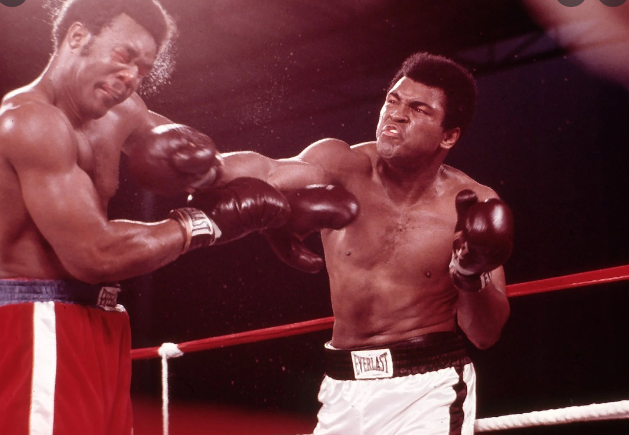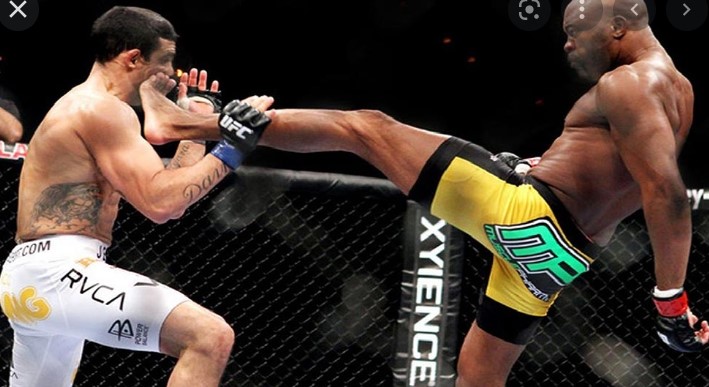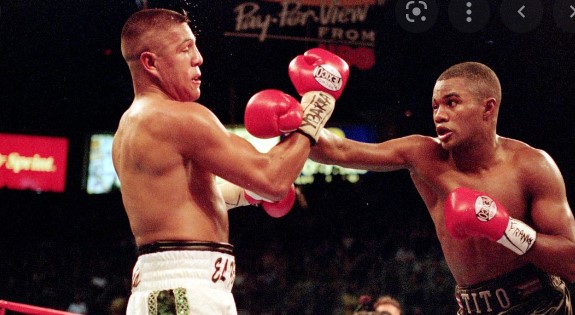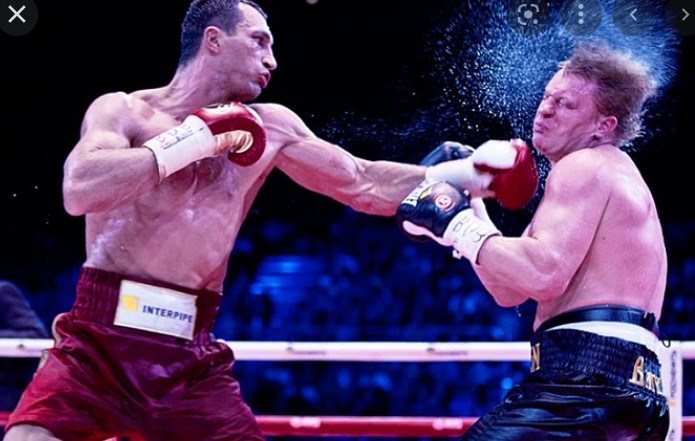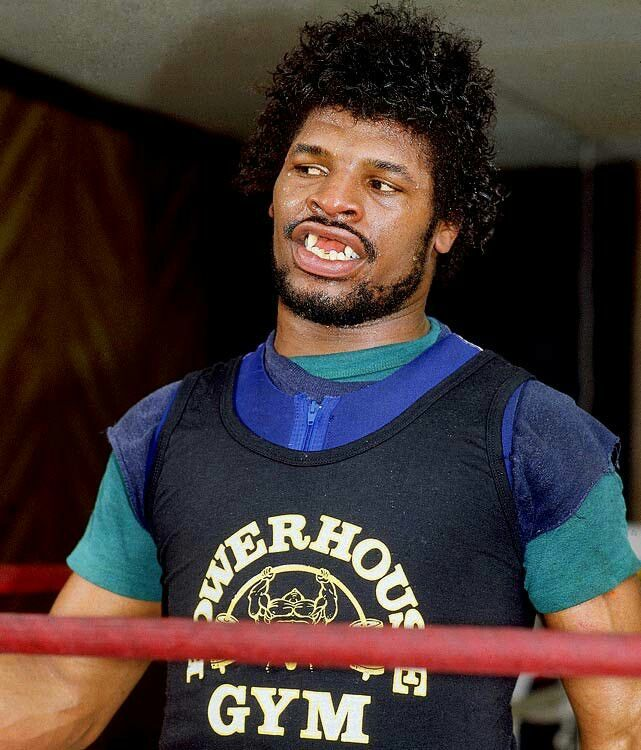How often have you heard the adage "A good morning begins in the morning"? However, in boxing, this old saying has not always proven to be true: boxers who appeared to be lacking on their debut have frequently gone on to have amazing careers, convincing naysayers to change their opinions and leave behind the initial error. We've chosen five particularly remarkable scenarios for you from among the many possibilities.
Bernard Hopkins “The Executioner”
Photo: tapology
The legendary American champion, who was initially king of the middleweight division and subsequently undisputed champion of the light heavyweight division, suffered a crushing setback on his professional debut.
Hopkins, who had learned the basics of boxing during his earlier spell of imprisonment, was defeated on points with a majority verdict by fellow countryman Clinton Mitchell, who was also making his debut.
Mitchell had a brief career in the pros, retiring after only five matches. It took the "Executioner" 16 months to get over his disappointment and begin to explore his underlying motivations. He then returned to the square and began the legend.
Juan Manuel Marquez “Dinamita”
Photo: youtube
Mexican Marquez, who is best known for his four heart-pounding fights versus Manny Pacquiao and an opulent career, did not look good on his first pro outing at the age of 20. In actuality, he was dismissed after hitting his opponent, compatriot Javier Duran, with a header.
Duran was playing in his second professional match; he would have played another 18 games, with a dismal record of four victories, fourteen losses, and two draws. "Dynamita," who had been forced to postpone his debut for three years due to injury, returned the following month, and other boxers were in excruciating anguish from then on.
Henry Armstrong “Homicide Hank”
Photo: wbcboxing
Henry Armstrong, considered one of the greatest boxers of all time and the undisputed world champion of featherweight, lightweight, and welterweight, had a dreadful start to his professional boxing career, losing four of his first five fights.
His first opponent was Al Iovino, who had a brief professional career but was well-known among amateurs due to the tragic death of his opponent, Leo Mahan, as a result of the hits he received during the match.
Armstrong got out to a fast start, rapidly ran out of steam, and was KO'd in the third round. This, along with subsequent defeats, did not convince him to give up on his dreams: "Homicide Hank" went on to punch his way into history.
Johnny Nelson “The Entertainer”
Photo: blackthen
The flamboyant British boxer still maintains the world record for world championship defenses in the cruiserweight division: thirteen, valid for the WBO belt. His unbroken streak came to an end when he retired before anyone could dethrone him. Nelson's first three professional bouts were all decided on points, thus while the latter half of his career was amazing, the beginning was not.
The first defeat was caused by compatriot Peter Brown, who was in his second professional engagement. Brown subsequently embarked on a modest boxing career, failing to win any titles and retiring after four consecutive losses, three of which were by KO. Nelson, who was nineteen years old at the time, took a few more bitter mouthfuls before finding his vengeance.
Wisaksil Wangek
Photo: sportingnews
This fearsome Thai puncher, capable of defeating international great Roman Gonzalez twice and inflicting a hard KO in the rematch, started his shirtless fighting career with just one win in his first five fights. The debut was particularly acrimonious: Akira Yaegashi of Japan, later world champion in three divisions, knocked out the 22-year-old Thai in three rounds.
Wangek has also lost to opponents with a less illustrious future, but he has learned from his mistakes by standing on the roof of the world: he is currently the WBC superfly champion, has become a national hero, and is looking forward to new incredible challenges.
Final Words
These and other fascinating tales demonstrate that a boxer's first step does not always disclose his fate, and that the numerous traps that await those who embark on the long and exhausting route of professional boxing must not deter a young athlete from pursuing his dream.
The strain of the first matches, the need for adaptability, and management and economic issues are only a few of the factors that make the route to greatness treacherous and prone to surprises, especially at the start. The great champion, on the other hand, is the one who recovers from every setback, learns from his mistakes, and accepts them as necessary ingredients in his triumph.
